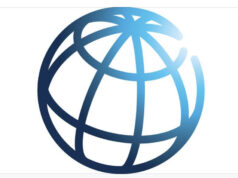Second and Final Call for Papers
Following the special meeting that was held in Washington D.C. on July 27 2018, between H.E. Dr. Abiy Ahmed, the Prime Minister of the Federal Republic of Ethiopia, and Ethiopian academics, professionals and civil society representatives, the Board of Vision Ethiopia is pleased to announce that it plans to hold its seventh conference in Addis Ababa on December 27 & 28, 2018. While thanking several of you who already have responded to our first call for papers, we would like to inform others that we have extended the paper submission date to November 15, 2018.
Consistent with our mission, the primary aim of the seventh conference (colloquium) is to continue the dialogue on the challenges of post-conflict transition in Ethiopia. The conference is an independent forum for generating policy options. Peace and security are the essential conditions for any orderly transition, and post-conflict transitions are more difficult in developing countries where formal institutions are weak, and there many state and non-state actors. Solutions and mechanisms are contextual, for what worked in one country may not be replicable in another one. Contributors to this conference are therefore expected to think about alternative ways and means of transitioning into a post-conflict political and economic order. A practical roadmap that has features of multidimensional perspectives is important. For example, we could ponder: What are the possible ways and means for a successful transition for Ethiopia: election or transitional government or something else? Can the government of the day find a workable equilibrium between complex and conflicting interests? Can it deliver what it promises and prepare the country for an unfettered free and fair election?
One line of argument for the resolution of conflict is that the next election can be a means of making peace and accelerating the transition. As the late great diplomat who served as the seventh Secretary-General of the United Nations, Kofi Annan is known to have said, “Elections are at the heart of democracy. When conducted with integrity, they allow citizens to have a voice in how and by whom they are governed.” When it comes to Ethiopia and the way forward, we all know that there are both intersecting and conflicting forces and interests. EPRDF’s records of accomplishments on accountability and election related matters have been dismal. On the other hand, there is a popular leader at the helm of the same party, and as of late, the party appears to be trying to reinvent itself. The ruling party’s 11th Congress (October 3-5, 2018) has made a number of promises.
As Aila Matanock has shown in her 2017 book and in her April 25, 2018 commentary, “post-conflict elections can greatly enhance the durability of peace agreements” provided that they are well stipulated, agreed and implemented. In regards to the case of Ethiopia, notwithstanding the absence of formal peace agreements between the contesting parties, there is widespread optimism. There are also glaring level of weaknesses and voids in the institution of accountability. At stake is whether the existing institutions of accountability (e.g. election board, auditor general, ombudsman, anti- corruption commission, human rights commission, courts, government controlled media, law
enforcement agencies, etc.) are competent, impartial arbiters, and adequately resourced. History has shown that many transitional elections failed mainly because of the absence of trust and the aforementioned entities failed due to lack of independence, impartiality, integrity and transparency mainly because of undue interference by the ruling parties. History also indicates that many post-conflict electoral processes failed because of external interference resulting in the alteration of results, eventually leading to the exacerbation of preexisting tensions.
Another line of argument is that a transitional government of national unity should be the interface between the incumbent government and the next election. Supporters of this view argue that a transitional government could allow all political and civic groups to participate in the process of the change we are witnessing. It adds credibility and integrity to the process. They also argue that the ruling party has the incentive to make the institutions of accountability weak. They argue for the “detoxification” of these institutions from EPRDF through a clear separation of powers (so called red lines). On the other hand, opponents of transitional government argue that given the changes being made by Prime Minister Abiy Ahmed and the instability we are observing, one needs a “leaner” and a “task-oriented” government that transforms the institutions to become independent and effective. They note that an enlarged, factionalized and dysfunctional coalition cabinet undermines change, eventually opening the opportunity for extremists to thrive and capture/recapture the institutions of the State. Here the sticky point is whether the Prime Minister should be given a carte blanche and, what if he turns out to be another EPRDF dictator.
East European transitions and the Arab Springs have provided important lessons about the risks and rewards of popular nonviolent movements. The lesson is that the success of post conflict transition are critically dependent on institutions of accountability, institutions that prevent military coups and mitigations against the capture of power by extremists and separatists. Hence the conference will have a multidimensional perspective and themes for the analysis of peace & security; equilibriums between various forms of conflicting identities and interests; structure and programs of political parties; lessons from other violent and non-violent resistances; constitution and separation of powers; corruption, state and regulatory captures; and independence and reliability of systems and processes.
Post conflict transition is also connected with the economy. The economic aspect of the transition will include, inter alia, macroeconomic stabilization, unemployment, trade, land ownership, corporate ownership structure, privatization and restructuring of state owned and political party owned/controlled companies; national debt; environment, industrialization and development; policing illicit financial flows, and (international) accounting for corporations, SMMEs and public goods/interests. The colloquium aims at contributing to the development of an integrated transition policy by taking lessons from transition economies, Sub Sahara Africa and the country’s own experience over the last 25 years.
The volume and quality of the papers submitted for presentation will determine the nature of the concurrent sessions. We particularly encourage academics and professionals in Ethiopia to share their research findings and experience. Papers must have theoretical depth and be supported by reliable empirical evidence. They must be discipline specific and have policy orientation or application(s). Note that we are not looking for pure theoretical papers. Instead, we are looking for applied research and policy papers, which are abreast with the rapidly changing reality in the country. Manuscripts must be dispassionate, forward-looking, non-parochial, and independent. Authors are advised to avoid using anecdotal evidence, and must dwell more on the future rather than on the past. Case experiences need to be put together in a coherent manner geared towards providing useful policy options. Authors must articulate why their proposal is “critical” or “good to have” for the type of transition that Ethiopia is facing.
All papers and proposals will go through a normal review process. As much as possible papers need to fit into one of the proposed themes: – peace and security; governance, institutions, accounting and accountability; and transition economics. Authors must take review comments seriously and if they fail to address them, the papers will be excluded from the program. Whether a paper will be presented at the plenary or concurrent panel/paper session is the sole discretion of Vision Ethiopia. Paper may be written in either Amharic or in English. However, speakers must consider reaching the wider local and diaspora audience. Consistent with Vision Ethiopia’s past practices, we aim to transmit the proceedings live. However, anticipate to be challenged by internet and facility situations particular to a developing country such as Ethiopia. Completed papers not exceeding 5000 words in length along with an abstract and a conclusion must reach visionethiopia18@gmail.com on or before November 15, 2018. For more information about Vision Ethiopia, visit http://visionethiopia.org

























